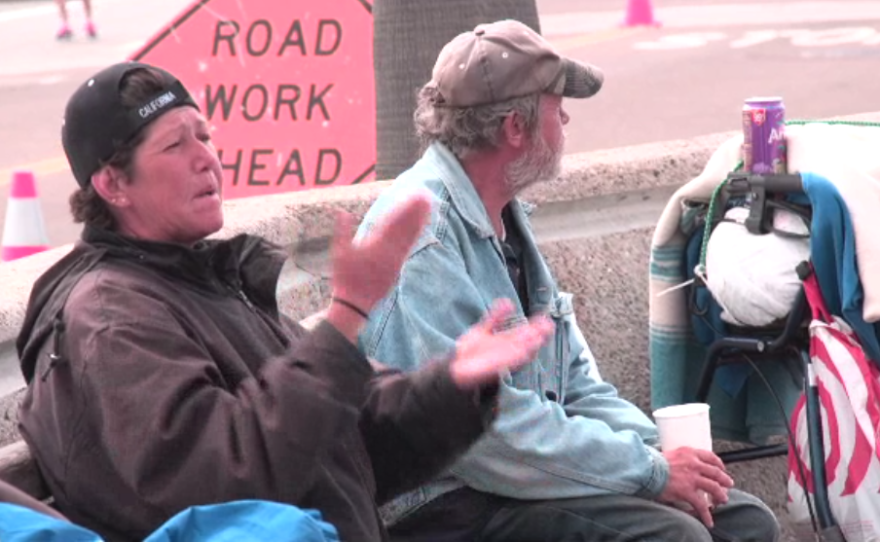This year’s annual Point-in-Time count shows North County’s share of the region’s homeless population has remained about the same: 23 percent. But the number of unsheltered homeless has increased.
About 200 of the approximately 2,000 homeless living in North County have shifted from the sheltered to the unsheltered column.
Officer Lonny Harper of the Oceanside Homeless Outreach Team, or HOT, said he tried to help a woman with a baby recently and had little to offer.
“There’s no hotel/motel vouchers for them," he said. “The only shelter in North County would be Operation Hope and their wait list is many moths long. The wait list for Section 8 vouchers is seven or eight years, so a lot of the people we talk to — they’re put on wait lists.”
RELATED: People Sleeping On Streets In San Diego County Increases 14 Percent
Homelessness in North County coastal areas increased faster than anywhere else in the county last year, especially in Oceanside. But this year’s count shows the number of homeless is down in the coastal area, and up in inland North County by 11 percent — even more than in downtown San Diego. The city of Vista saw the largest increase.
North County shelters in Escondido, Vista and Carlsbad are now year-round but Oceanside’s shelter is still only open during the winter months. Harper said that is one reason more homeless are congregating near the pier these days.
“Our winter shelter in town is closed now, so that’s 50 people who (were) off the street and had a roof over their head at night — and many of those were receiving services and food and are now on the street,” Harper said.
Rebecca Denby is one of those the HOT team is trying to help. She sleeps under benches or wherever else she can find a place to be undisturbed.
“I’m so tired of being homeless,” she said. “I’m so tired of being on the streets.”
Nicholas Perez said he worked for 12 years in construction in San Diego, but no longer has a job. He does not sleep on the streets, but right now he is staying temporarily with his mother.
“There’s nothing affordable, it’s hard. You've got to be a doctor, you have to have dual incomes. I don’t know how people do it here, you've got to keep it together here," Perez said. "if you’re missing a beat, you’re out of it."
Perez said he looks at homeless people differently now, realizing he could easily become one of them.






